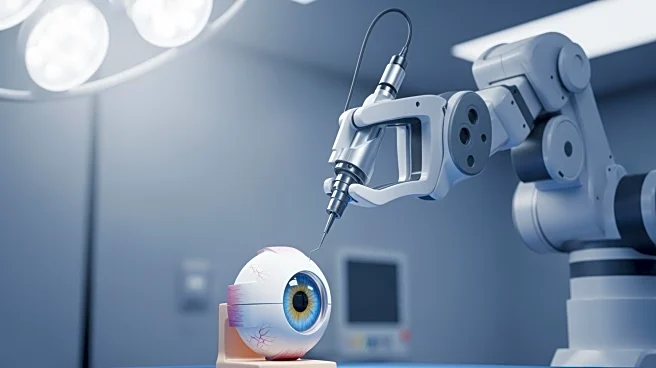What's Happening?
A new robotic system developed by Prof. Ali Nasseri and his team offers unprecedented precision in administering injections during eye surgery. The system achieves micrometer-level accuracy, crucial for
delicate procedures like retinal injections. The robot uses optical coherence tomography to track involuntary eye movements, ensuring precise drug delivery. The TUM Clinic has been instrumental in the robot's development, aiming to minimize complications such as inflammation associated with manual injections. While promising, the system is still undergoing testing, with trials on pig eyes planned before human clinical trials commence.
Why It's Important?
The introduction of this robotic system represents a significant advancement in microsurgery, particularly in ophthalmology. By enhancing precision, the system could reduce the risk of complications and improve patient outcomes. The project, supported by substantial funding from the Federal Ministry of Research, Technology, and Space, highlights the growing role of robotics and AI in healthcare. Successful implementation could lead to safer, more efficient surgical procedures, benefiting both patients and medical professionals.
What's Next?
The next phase involves testing the robotic system on pig eyes, which closely resemble human eyes, followed by trials on live animals. Human clinical trials are anticipated in the coming years, contingent on successful animal testing. The ongoing research and development efforts aim to refine the system's capabilities and ensure its safety and efficacy in clinical settings.











